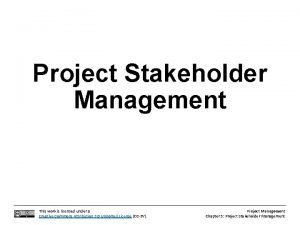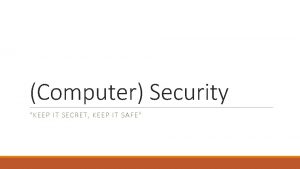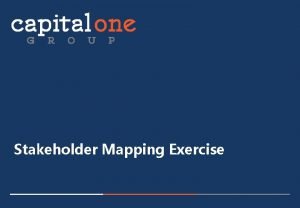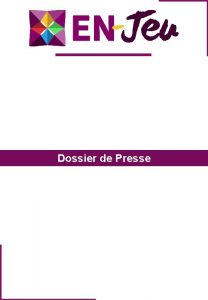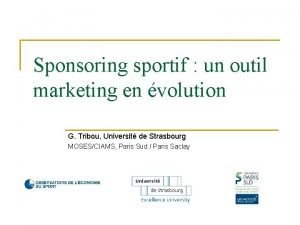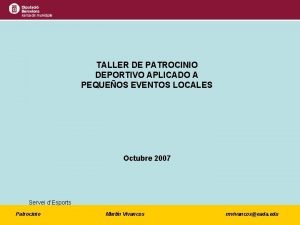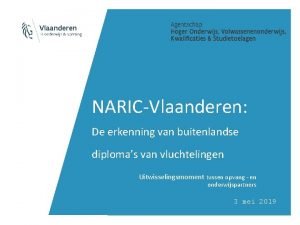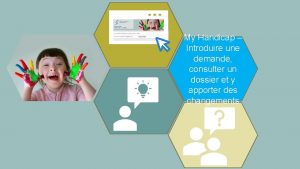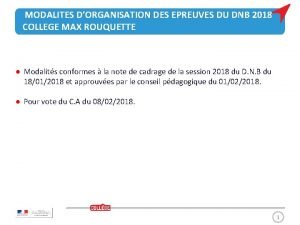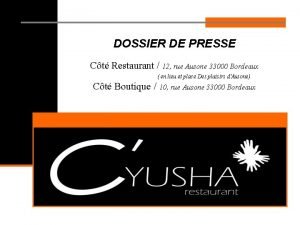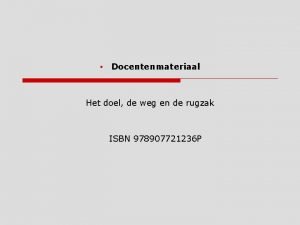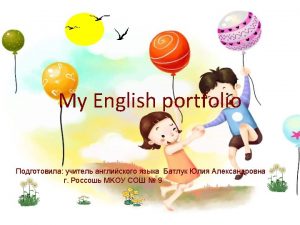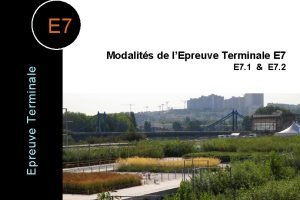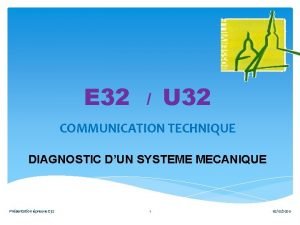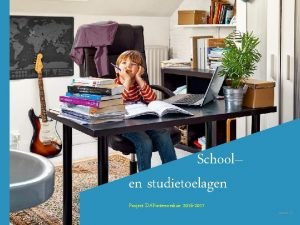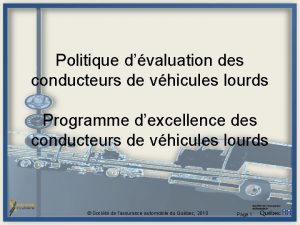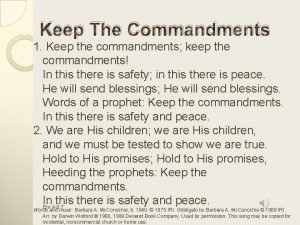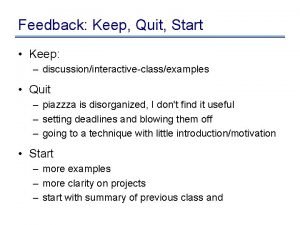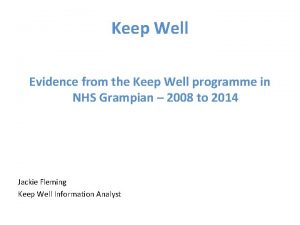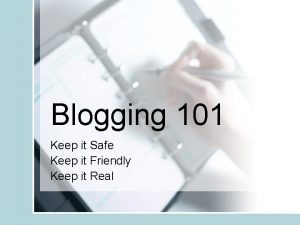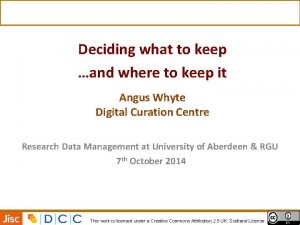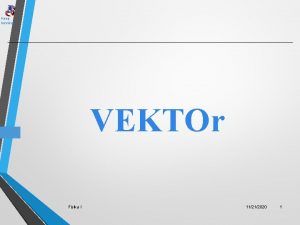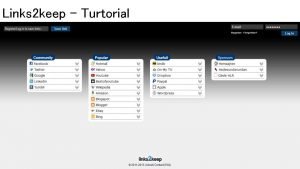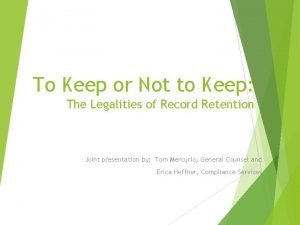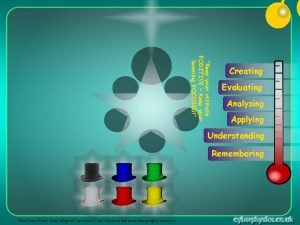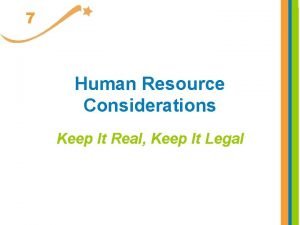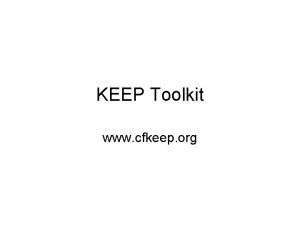Dossier My Dossier In my dossier I keep


















- Slides: 18


Dossier My Dossier In my dossier I keep examples of the work I have done, pictures I have drawn, and lists of my new words. I can use the dossier to show my teachers and parents what I have learnt…

-In my dossier I have - Contents Description 1 2 3 4 5 6 7

My Language Passport My name is: _________ …………… Stick your photo or draw your picture here I live at: ___________. . . . . My birthday is: _________ My school is: _________ …………… My hair is: _________ My eyes are: _________

Let me introduce my family to you! My family………………………… ………………. 5

My school and my friends 6

My classmates are my friends 03. 11. 2020 My school is cool And it is full Of many girls and boys, Who make much noise. We play all time And learn a rhyme, Or read a book, And sew and cook. We love school all And wait for fall To meet together here, To teach and study near. http: //aida. ucoz. ru 7

Global benchmarks of communicative proficiency – Listening and Read U Listening N D E R S T A N D I N G Reading A 1 BREAKTHROUGH A 2 WAYSTAGE B 1 THRESHOLD I can understand words and phrases about myself, my family and school and simple questions and instructions. I can understand most instructions given inside and outside school, can follow topics covered in the mainstream class, and can understand a simple story. I can understand detailed instructions given in school, the main points of topics presented and stories read aloud in the mainstream classroom, and films about things I am familiar with. I can follow most conversations between other pupils without difficulty. I can recognize the letters of the alphabet and can understand signs and simple notices in the school and on the way to school. I can understand words on labels or posters in the classroom and some of the words and phrases in a new piece of text. I can understand short texts on familiar subjects and can use the alphabet to find items in lists (e. g. , a name in a telephone book). I can understand descriptions of events, feelings and wishes and can use comprehension questions to find specific answers in a piece of text. I can also use key words, diagrams and illustrations to help me understand texts I am reading. I can follow written instructions for carrying out classroom Три рисунка с подписями (if appropriate to the age of the pupil)Подпись

With a lot of help Listening Reading A 1 A 2 With a With little no help B 1 With a lot of help With a With no little help

W Global benchmarks of communicative proficiency – Speaking and Writing Spoken Interaction Spoken Production Writing (if appropriat e to the age of the pupil) A 1 BREAKTHROUG H A 2 WAYSTAGE B 1 THRESHOLD I can say hello and goodbye, please and thank you, can ask for directions in the school, and can ask and answer simple questions. I can answer questions about my family, friends, school work, hobbies and holidays. I can keep up a conversation with my classmates when we are working together, and can express my feelings. I can talk fluently about school, my family, my daily routine and my likes and dislikes. I can take part in classroom discussions and can hold conversations with other pupils about things I am interested in. I can repeat what has been said and pass the information on to another person. I can give a simple description of where I live and people I know, especially members of my family. I can write my name and address and the name of the school. I can write labels on pictures and copy short sentences from the board. I can describe my family, my daily routines and activities, and my plans for the immediate or more distant future. I can write new words in my European Language Portfolio and can write short texts on familiar topics (e. g. , what I like to do when I’m at home). I can write a short message (e. g. , a postcard) to a friend. I can retell a story that has been read in class or the plot of a film I have seen or a book I have read. I can describe a special family event (religious festival, birthday, new baby, etc. ) and can explain my opinions and plans. I can write my daily news, a short letter, a summary of a book or film, an account of my feelings about an event or situation, and a short dialogue to be performed by puppets.

A 1 With a lot of help Speaki ng Writing A 2 B 1 With a With little no help lot of little no help help

Myself A 1 I can understand questions about • A 2 • I can understand what my friends are myself saying • I can read words that I already know I can understand when the teacher tells me to something that I already know do • I can answer lots of questions about myself • and my family • I can tell my parents about what I did in school I can find my name on a list or on the classroom wall • I can tell my teacher if I have a problem I can answer some questions about myself and my family and say if I like something • I can write a little about myself and my family and about things I like doing I can tell the teacher if I need something I can copy words from the board • I can talk about the colour of my hair and eyes and how tall I am

Myself B 1 • I can easily understand my teachers and my friends • I can read stories about children in other places • I can answer questions about my life and what I like doing • I can tell other people about something nice that happened to me • I can write about things that happen and the things I like and don’t like

Food and clothes A 1 I can understand the names of the clothes I wear to school and the food that I eat in school I can read the words for the clothes that I know and the food that I like and don’t like I can ask for things in shops and ask how much they cost I can say what food and clothes I like and don’t like I can write words for different foods and for the clothes we wear • A 2 • I can understand when we need special clothes for school • I can understand what foods we are allowed to bring to school • I can read the names of foods in the supermarket or in a café • I can understand about clothes when I read a story • I can ask and answer questions about drinks and foods • I can describe a meal in my home • I can write a little about a special occasion in my home and the food that I like and don’t like

B 1 Food and clothes • I can understand talk about food or clothes • I can read about food that is good or bad for me • I can talk with my friends about the clothes I like • I can write about making food

Weathe r A 1 • A 2 I can understand the words for different types of weather • I can understand the main points when other people talk about weather I can read the words on a poster or picture about weather • I can read about weather when there are pictures or diagrams to help me I can answer simple questions about the weather I can write words about weather • I can talk about the weather that I like • I can talk about the different clothes we wear for different kinds of weather • I can tell my teacher about the weather outside • I can write sentences about weather, the days I like and the clothes we need

Weath er B 1 • I can watch the weather forecast on TV and understand the main points • I can understand when the teacher tells us about weather • I can read about weather in my textbook • I can answer questions about weather • I can talk about weather in Ireland in other countries • I can write a short letter describing the weather in Ireland how we dress in different types of weather

My plans for the future 03. 11. 2020 http: //aida. ucoz. ru 18
 Keep satisfied manage closely monitor keep informed
Keep satisfied manage closely monitor keep informed Keep it secret keep it safe
Keep it secret keep it safe Keep satisfied manage closely monitor keep informed
Keep satisfied manage closely monitor keep informed Edito dossier de presse
Edito dossier de presse Doelstelling scriptie
Doelstelling scriptie Clicséqur mon dossier citoyen
Clicséqur mon dossier citoyen Outil sponsoring
Outil sponsoring Dossier patrocinio deportivo
Dossier patrocinio deportivo Naric dossier opvolgen
Naric dossier opvolgen My handicap mon dossier
My handicap mon dossier Exemple de problématique oral brevet
Exemple de problématique oral brevet Dossier de presse restaurant
Dossier de presse restaurant Dossier afspraken en procedures
Dossier afspraken en procedures My dossier
My dossier Spv bts ap
Spv bts ap Exemple dossier e32 turbo
Exemple dossier e32 turbo Studietoelage dossier opvolgen
Studietoelage dossier opvolgen Dossier pevl
Dossier pevl Dossier tecnico pedagogico dgert
Dossier tecnico pedagogico dgert
